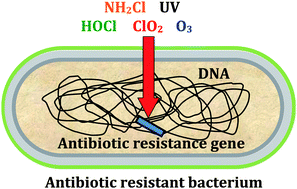 This critical review, written by Michael Dodd from the University of Washington, focuses on the role that wastewater treatment plants play in the removal of antibiotic resistance genes from the wastewater to stop the spread of antibiotic resistant bacteria to non-resistant communities.
This critical review, written by Michael Dodd from the University of Washington, focuses on the role that wastewater treatment plants play in the removal of antibiotic resistance genes from the wastewater to stop the spread of antibiotic resistant bacteria to non-resistant communities.
Although most treatments inactivate antibiotic resistant bacteria, stopping horizontal gene transfer processes, antibiotic resistance genes can be left in cell debris in the water, allowing natural transformation and/or transduction of the DNA into non-resistant bacteria. The review introduces these topics and processes fully (along with their environmental implications), and describes five common wastewater treatments, along with their effects on antibiotic resistant bacteria and antibiotic resistance genes.
Potential impacts of disinfection processes on elimination and deactivation of antibiotic resistance genes during water and wastewater treatment
Michael C. Dodd
DOI: 10.1039/C2EM00006G
This HOT article is free to access for the next four weeks following a simple registration for individual users.










